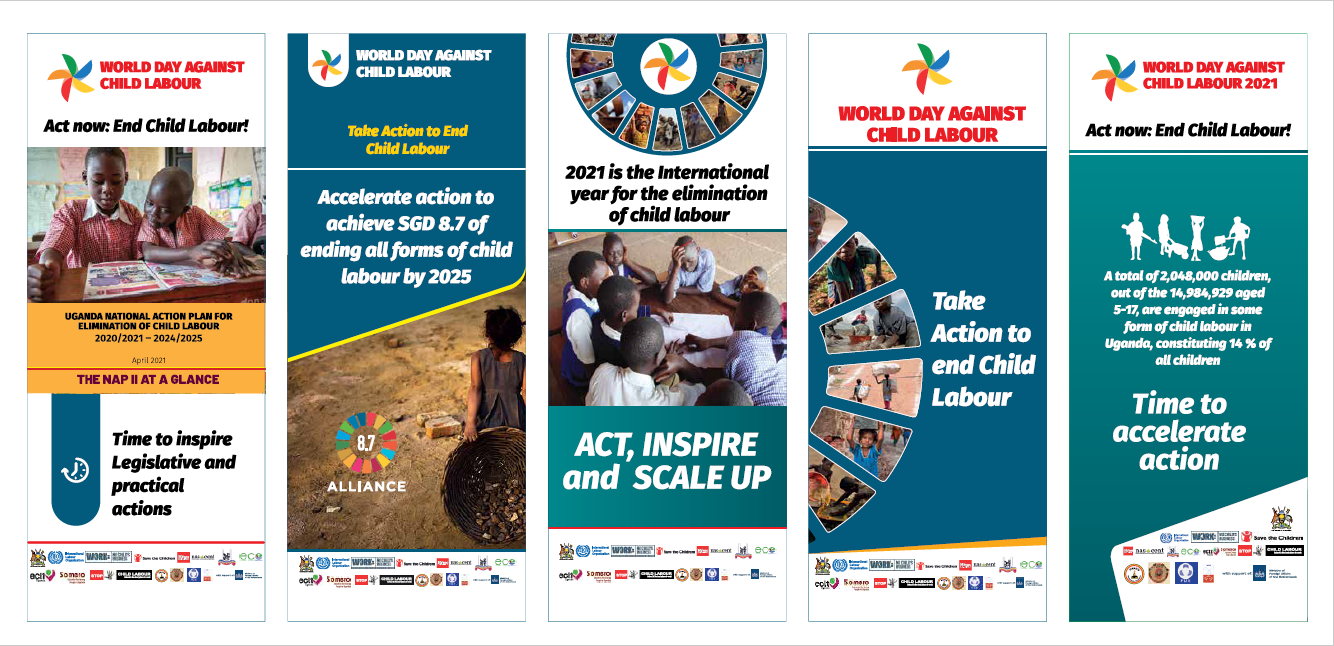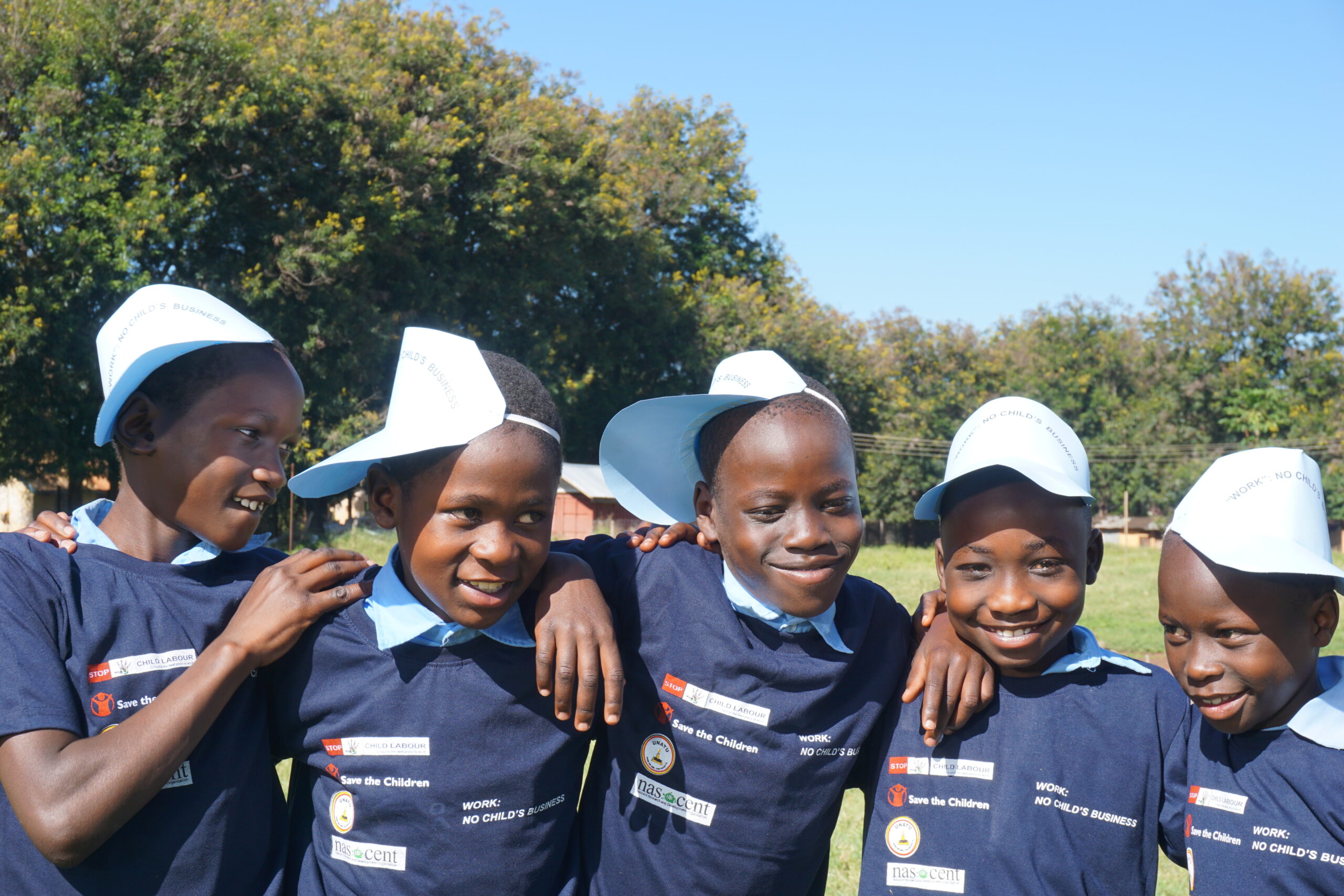WNCB in Uganda had plans to commemorate the World Day against Child Labour by holding the national celebrations in the Karamoja region with the intension to create national wide awareness and to also have the government increase her priority in responding to child labour within the region. However, due to the increased restrictions to control the spread of COVID-19, this could not take place.
Instead, a hybrid event was held with 20 high-level representatives from a.o. FAO, ILO, IOM, the Federation of Uganda Employers plus a number of high level officials from the Ministry of Gender, Labour & Social Development (MGLSD). WNCB Country Coordinator in Uganda, Juliet Wajega, represented all CSOs & NGOs in Uganda in a panel discussion. The event was live streamed on National Television and also later in the main TV News Bulletin.
See here the link to the news item on National Television.
A number of commitments were made. The Permanent Secretary of the MGLSD launched a 32 member committee to serve as the National Steering Committee for Elimination of Child Labour in Uganda. WNCB has a representative on this Committee that serves to influence policy and action at national level. WNCB participated in the review of the National Action Plan (NAP) for the Elimination of Child Labour. WNCB also developed the first draft of the popular version of the National Action Plan for the Elimination of Child Labour. The dissemination of the NAP will start in our programme area Karamoja.
The strict lockdown that Uganda’s President re-imposed on the 6th of June includes the closure of all educational institutions, some bans on travel, and suspension of meetings. Following the imposed measures activities of WNCB partners therefore have been implemented low key. A webinar was organized on 10th June 2021 as one of the national level pre-WDACL events and WNCB was invited to participate. In Karamoja, awareness raising efforts were stepped up through the media. Radio Talk shows have been held with involvement of technical and political leaders, radio spot messages and a song on Child Labour were broadcasted.
WNCB created communication and promotion materials. These materials also show the participation of key stakeholders. This commitment – on all levels – is crucial in eliminating child labour.


